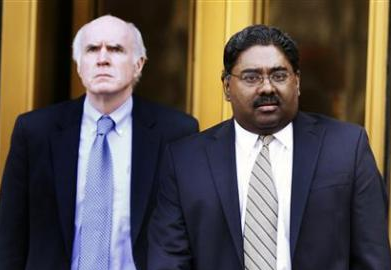
(credit: jmv)
You may not have heard yet, but there’s been some interesting drama in the house of the country’s most-worshipped investor – the Oracle of Omaha, Mr. Warren Buffet. One of the top execs at his company (Berkshire Hathaway) seems to have, well, cheated at the game. David Sokol looked like he was next in line to replace Buffet when he eventually retires. But then he pulled a little thing called insider trading.
He bought a bunch of shares in a company, and then convinced Buffet that Berkshire Hathaway should buy that company, which raised the price of the shares and made Sokol a tidy profit. Unfortunately for everyone, that’s illegal. (For the record, Sokol so far denies doing anything wrong.)
There are many ways the company could have handled it – they could have tried to cover it up, or denied the whole thing and given Sokol a big bonus. But to his credit, Berkshire’s famous leader just fessed up. At the company’s annual meeting, where company executives meet with investors, explain their decisions, and take feedback, Buffet basically said that his top aide had done a terrible thing. He also heaped some blame on himself, saying that he wasn’t skeptical enough when Sokol came to him with the proposal.
Now Sokol is out of a job and the company is moving forward. Easy as that. The truth is, bad things happen all the time. But in business as in the rest of life, all it really takes to make things right again is to take responsibility for what happened, fix what you can fix, and move on.






